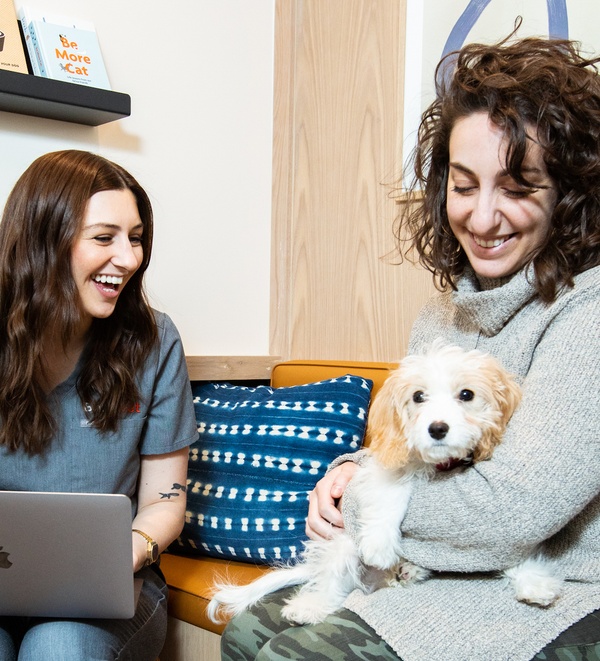
Spaying Your Pet: What to Expect
Wondering whether your dog or cat should be spayed? It’s best to talk to your veterinarian directly regarding your pet's individual needs — but in the meantime, here’s some information about what to expect.
Pre-surgical Exam and Bloodwork
Prior to any surgery, it’s important for your pup or kitty to have an up to date physical exam with their veterinarian. Here are a few things our vet will check to be sure your buddy’s healthy for surgery:
- Heart and lungs
- Abdomen
- Gum color
- Body temperature
- Skin health, especially near the site where the spay incision will be performed
- Eyes, ears, nose and throat
In addition to a physical exam, routine bloodwork may be recommended. This will ensure your pet has:
- A healthy immune system, with enough white blood cells.
- A normal amount of red blood cells, and that your pet is not anemic.
- Healthy blood clotting cells, which are very important for any surgery.
- A normal blood “chemistry” panel, which checks several things including liver and kidney function and electrolytes.
INQUIRE ABOUT SPAYING YOUR PET HERE
Preparing for a Spay
Fasting overnight is necessary for most pets. We'll provide you with detailed instructions Check with your vet clinic for specific instructions.
You'll bring your pet to the clinic early in the morning, and pick them up later in the day when they’re fully awake. Don’t worry, your fur baby is in good hands with people who love pets!
During the procedure
A spay is performed under anesthesia. This provides pain control, allows the procedure to be done safely since there won’t be any sudden movements, and reduces fear and stress. In other words, your pal will sleep comfortably through the procedure.
During the spay surgery, we take several measures to ensure your furry friend’s safety, including oxygen supplementation, and monitoring their heart rate, breathing rate, temperature, blood pressure, gum color, reflexes and more.
After the Surgery
Your pup or kitty will probably feel tired for the next 12-24 hours as the anesthetic drugs work their way out of the system. So, be sure to give your pet a quiet, calm place to rest, away from children and other pets. Avoid stairs and try to keep them from jumping, as they may be more prone to falling during this time.
You’ll receive specific discharge instructions from us after your pet's surgery, but here’s a general overview of what to expect:
- You’ll receive medications to give at home. Be sure to follow all directions to prevent pain and infection.
- Use an e-collar. This prevents your pet from licking the site, which could cause irritation, infection, or even ripped stitches (which can require an emergency vet visit).
- Limit their activity for 10 days. This will prevent bleeding and allow for better healing.
- Check the incision site daily, and monitor your pal for any signs that they’re not feeling well (you'll receive specific instructions after the spay so you know what to look for).
Fortunately, complications and problems are rare, but it's still important to monitor your pal after their spay. More than likely, your pup or kitty will be full of energy soon after their surgery, and the hardest part of recovery will be encouraging them to rest.
After they recover, they'll be back to all their normal activities, and will be set up for a lifetime of health benefits and spending quality time with you.
Learn more about spaying your pet at Bond Vet here.